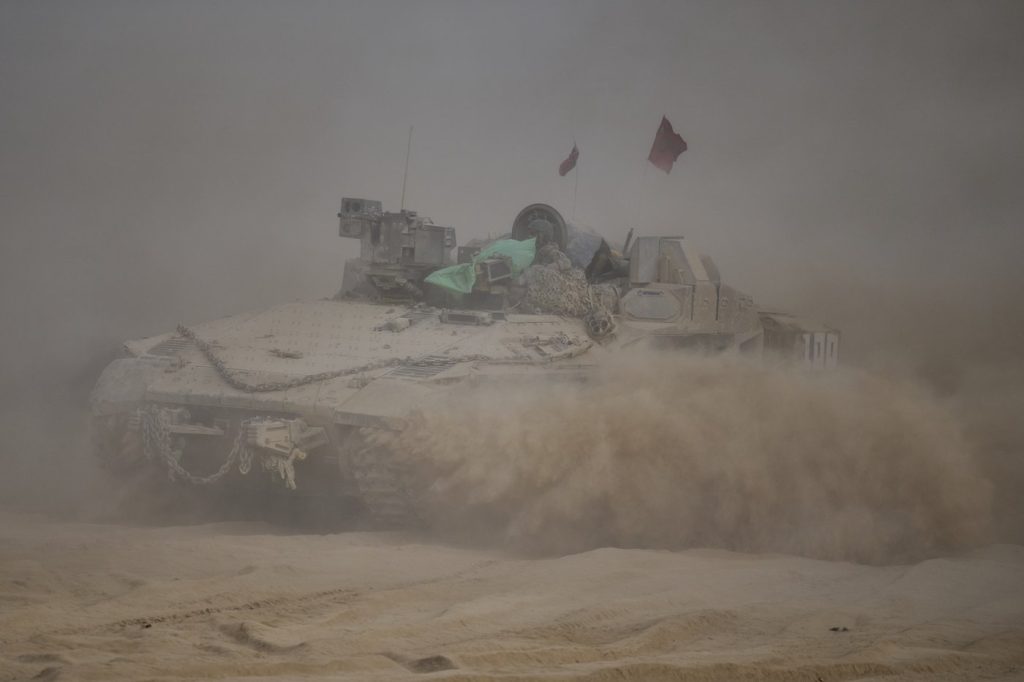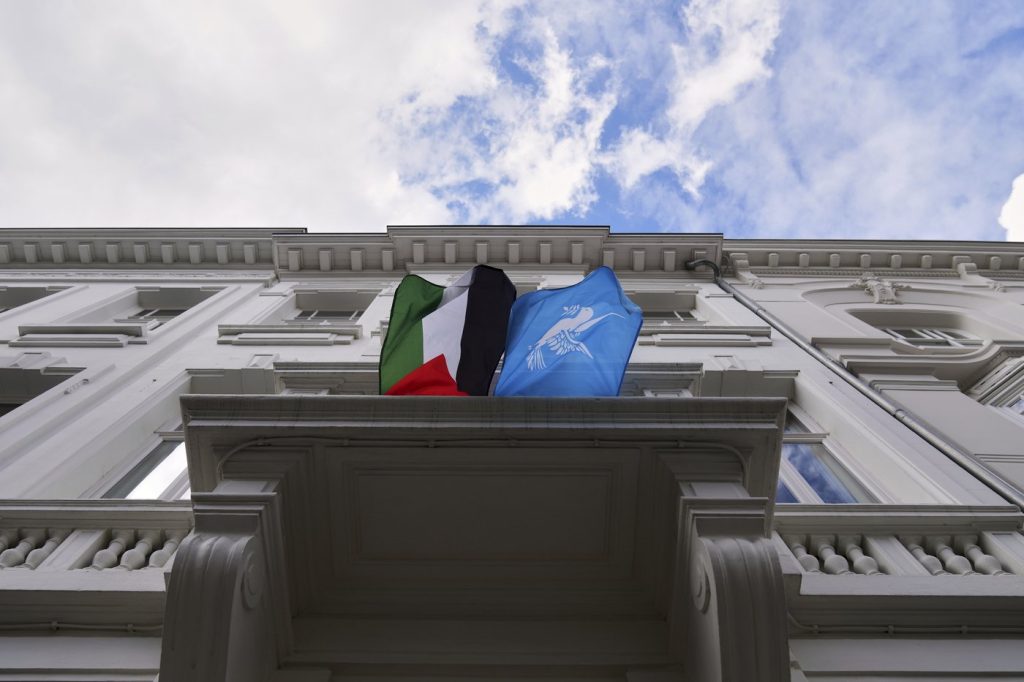DEIR AL-BALAH, Gaza Strip (AP) – Israel has initiated the mobilization of tens of thousands of reservists and issued repeated evacuation warnings as part of its strategy to escalate its offensive in Gaza City. This move has sparked domestic opposition and international condemnation. The call-up of reservists, announced last month, coincides with ongoing ground and air operations aimed at targeting areas in northern and central Gaza, specifically hitting the Zeitoun and Shijaiyah neighborhoods.
Once home to bustling markets, schools, and clinics, Zeitoun has been transformed into a desolate landscape, with streets emptied and buildings reduced to rubble. Israeli military officials have labeled this area as a "dangerous combat zone." The Israeli government maintains that Gaza City remains a stronghold for Hamas, housing a complex tunnel network, despite numerous military incursions throughout the nearly two-year conflict against the group. This situation has led to hundreds of thousands of civilians taking shelter while grappling with the realities of combat and famine.
Not all reservists are willing to serve again, with some voicing their refusal. They accuse Israeli Prime Minister Benjamin Netanyahu of prolonging the conflict for political gains rather than working towards a hostage deal with Hamas. Netanyahu asserts that military operations will persist until all hostages are returned and Hamas surrenders. In a video statement, he described the current phase of the conflict as "decisive," stressing unity and determination.
On the ground in Gaza City, Israeli forces have reiterated warnings to Palestinians remaining in the area, many of whom doubt the efficacy of evacuations. Israeli military spokesperson Avichay Adraee indicated that combat operations would escalate soon, and arrangements would be made for relocated civilians in Muwasi, a temporary camp south of Gaza City. Reports from hospitals indicated at least 47 fatalities across the Gaza Strip since the morning, including a devastating strike on a residential building in the Tel al-Hawa neighborhood that killed 15 individuals, including children.
Rescue operations revealed the harsh realities facing exhausted residents of Gaza City, with tragic scenes emerging of families torn apart by the violence. One resident recounted waking to the "sound of banging and rising smoke" only to discover that their neighbors had perished in the attack. Hospitals such as Nasser in Khan Younis have also reported receiving multiple casualties from ongoing airstrikes and gunfire, highlighting the perilous conditions of civilians seeking aid.
Humanitarian crises are deepening, with more than 2,300 aid seekers already killed. The Gaza Health Ministry has reported alarming malnutrition-related fatalities, indicating the severe food insecurity facing the population. According to the ministry, the death toll from malnutrition in August reached 185, the highest in recent months. Total casualties attributed to the war stand at 63,633, with no distinction made between civilians and combatants, though it is noted that women and children constitute roughly half of the deceased.
The war initially erupted following a Hamas-led attack on southern Israel on October 7, 2023, which resulted in the deaths of 1,200 individuals, predominantly civilians, and the taking of 251 hostages. Presently, 48 hostages are believed to remain in Gaza, with around 20 considered alive by Israeli authorities, following a series of ceasefires that resulted in other hostages being released.
In Israel, with a population of less than 10 million, mandatory military service is required for most Jewish men, which typically includes a decade of reserve duties. However, growing criticism of the war has led to various movements encouraging reservists to refuse service. One group, Soldiers for the Hostages, claims over 365 soldiers are prepared to defy additional mobilization orders, viewing the ongoing conflict as detrimental to both hostages and Israeli society while inflicting suffering on Gazan civilians.
While not reporting specific numbers, the Israeli military has acknowledged the growing impact and significance of the reservist mobilization. As tensions rise and the conflict continues, the humanitarian crisis in Gaza only becomes more severe, punctuating the urgent need for a resolution amidst the ongoing violence.












